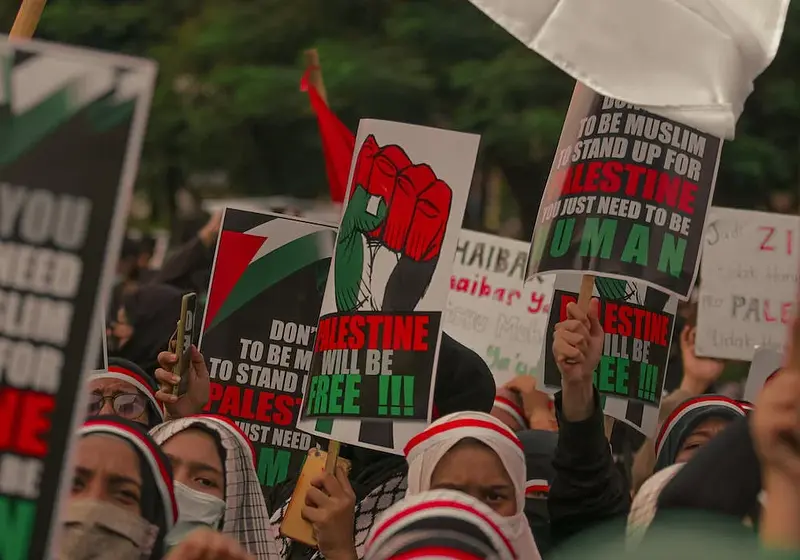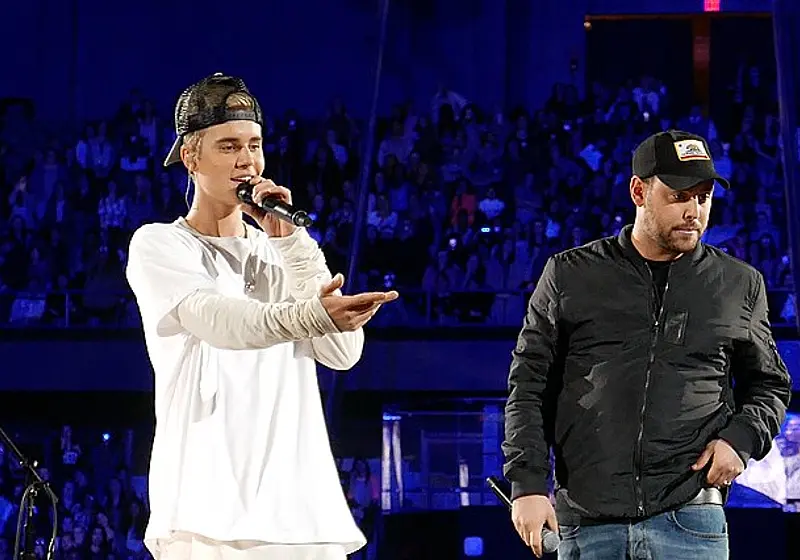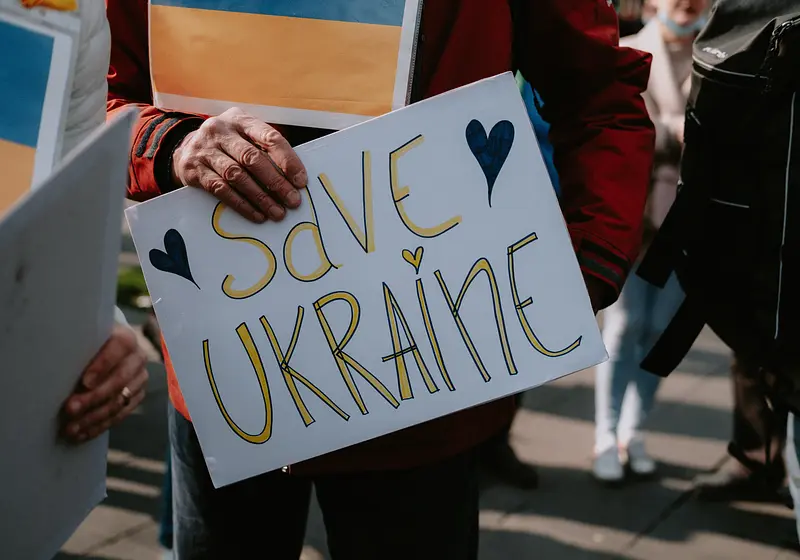Recap of 2023 Israeli/Hamas War So Far
As of October 7th, 2023, the country of Israel officially declared war on the Gaza Strip, following the attack by the Islamic Resistance Movement, otherwise known as “Hamas,” earlier that day. The Gaza Strip, populated by predominantly Palestinian citizens, was immediately bombed in retaliation, killing hundreds of innocent people.
Foreign aid has appeared on both sides of the spectrum, but the most prevalent aid comes from the United States. According to USAfacts.org, not only has, “Israel received the second-largest amount of US aid in 2022 after Ukraine”, but “the US has provided more foreign aid to Israel than to any other country [since World War 2]”.
Given the 75-year alliance, it was no surprise that current President Joe Biden expressed extreme sympathy for Israel following Hamas’s 2023 attack. He reassured the people of the United States that, “We stand with Israel. We stand with Israel. And we will make sure Israel has what it needs to take care of its citizens, defend itself, and respond to this attack.
27 days removed from Israel’s declaration of war, Israeli forces have continued to aggressively attack the Gaza Strip, using the huge military and financial backing by the United States to slaughter up to 9000 Palestinians. Hamas forces have counteracted both in the media, and in counter active air strikes.
However, as of November 2nd, it has been announced from an anonymous Israeli spokesman that, “Israeli has said its military has completed the ‘encirclement’ of Gaza City” and “a ceasefire ‘is not on the table at all’”.
Mixed Views
On the surface, the week of October 7th, 2023 felt like a whirlwind of unprecedented violent events. Visual depictions of bombed streets and buildings hiding hundreds of innocent people underneath its rubble flooded every major social media page.
All the most reputable news media outlets hastily published headlines with statements such as “Palestinian Militants Stage Attack on Israel” or “Militants in Gaza cheer as motionless hostage is paraded around”.
As bombs tore down infrastructures around the Middle East, social media back in the United States exploded with more and more scenes of unfiltered brutality. When Israel eventually fired back with an equally devastating airstrike at Gaza that same day, the world was forced to choose a side. Of course, the United States government had preordained its support in Israeli efforts, but that stance doesn’t support the views of the diverse population of citizens the United States holds.
Despite what the immediate news coverage of the war suggested, the current war between Israel and Hamas is nothing but a continuation of 75 years of bad blood between the two neighboring territories.
In November of 1917, the British empire enacted a declaration targeted towards the Jewish-Zionist population called the Balfour Declaration, which promised them a home in previously populated Palestinian territories. While the declaration wasn’t enacted immediately, the horrific genocide of World War 2 called the Holocaust forced Britain to stand true on their promise and provide a home for tens of thousands of displaced Jewish families.
The result was the establishment of Israel following its alliance with Egypt and a formal Declaration of Independence in 1948.
Almost immediately after the establishment of Israel, Arab forces protested the bombardment of Palestinian territory, fueling the separation of states, subsequently enacting decades worth of political, militant, and territorial tension.
From the Inside Out
I’ll be honest; I had no idea of the global tensions taking place. The graphics that seemed to pile up by the dozens each day made it abundantly clear that I was living in a history I hadn’t yet processed. Every day for the past month I struggled to make any conclusive ideas or stances of what I was seeing.
As more details of the war began to unfold, I watched as Palestinian and Israeli protests filled the streets of NYC. People with makeshift pins, face paintings, and large cardboard signs put their lives on the line in front of impatient police and opposing forces to stand up for their beliefs. I could imagine many of the protestors came from Israel or Palestinian descent and had friends and family currently residing in the Middle East in mortal danger.
I was also taken aback to see mutuals around my age on social media having such strong opinions on a topic I just heard about a month ago. On Instagram, I read stories of strangers I pass by every day on my way to school opening about deep rooted pain they’ve experienced witnessing deaths in their home country.
With nowhere else to put their anger, disappointment, and sadness, my generation of strong-willed protestors against violence in the Middle East accompany their physical efforts in public demonstrations with a fiery social media presence calling for extra awareness and support.
It honestly felt shameful to be outwardly passive about the issues plaguing our world today. While I never exactly shied away from liking a post, or even sometimes reposting an earlier post expressing my hope for an Israeli cease-fire on Gaza, I also lacked the personal accountability to stay informed. In some ways, there was a general disconnect from the issue because I wasn’t directly affected.
The interpersonal aspect I noticed many protestors had been something I could relate to in terms of the current war. I liked those posts because it felt like the most moral thing to do; not because I had an individual desire to support a firm stance.
Performative Activism
The Boston Medical Center defines performative activism as, “activism that is done to increase one's social capital rather than because of one's devotion to a cause”.
Consciously or subconsciously, many Americans have gotten used to this sort of advocacy. With the rise of social media as the main source of expression in America, it’s become a lot easier to filter out issues that actually benefit from genuine mass concern. As a result, we as a society have turned outlets of media that could potentially broadcast topics of social awareness on a much broader scale into a tool that normalizes the inaction of critical issues.
Instead of keeping ourselves informed and taking the time to participate in real activism, a lot of us settle for the simple routine of likes, follows, and reposts. In the instance of the Israel/Hamas war, I’ve seen myself settle for the same routine, which puts to question the integrity I must hold as an active member of society.
Connection to the BLM Movement
Writing about performative activism in 2023 reminds me of a similar instance of immoral advocacy surrounding the BLM movement in the late 2010s to early 2020s. As an African American man, that interpersonal aspect mentioned earlier was something I could relate to in terms of BLM. I feared sharing similar fates to the faces of the movement; George Floyd, Trayvon Martin, Sandra Bland, Hamadou Diallo, Alonzo Smith, Breonna Taylor, and so many more that looked like me or related to me.
I stood in those protests shouting the names of our fallen innocent black people at the Million Man March, documenting the pain I shared with others in the crowd. Those moments will forever stick with me and serve as a reminder to deny peace until justice for all is served.
However, I also remember those close to me that stayed relatively silent. Sure, social media played its usual role in monetizing photos and videos of protestors, but my mutuals were never the ones in those pictures. I saw no real intent to support the cause, but instead felt like those reposts were nothing more than a half-assed attempt to remain relevant online.
I was forced to reflect on that personal feeling of betrayal while reading @d.ouni.a’s testimonial on Instagram. As an advent supporter of Palestinian efforts and cease-fire of the war in the Middle East, Dounia regards those “private conversations and like of [her] ig stories” as absolutely nothing. She continues to affirm that the “backwards statements and declarations of ‘solidarity mean nothing [as well],” calling for those people to “wake tf up and do something”.
What Can You Do?
I completely understand how hard it must be to remove yourself out of the comfort of being indifferent. We’ve become so used to disassociating from topics that don't invoke personal emotion, which in turn takes away from the collective morality we hold as a society. Here are some tips to combat the inaction of virtue signaling and performative activism:
Stay Informed. It’s okay not to be immediately informed of every current event. Many times, current events take a while to be backed with substantive information that provides a somewhat complete timeline of context behind the situation. If you find yourself feeling indifferent to an event due to a lack of knowledge, it’s okay to take your time in educating yourself.
Use your Social Media Effectively. There’s nothing wrong with using social media as a source of advocacy. The issue that arises oftentimes is this heavy reliance on rather impartial acts of support.
Instead of liking a post, create one. If not a post, a story on Instagram, TikTok, or Snapchat expressing your personal activism means a lot.
Support Petitions. Social media creation isn’t the only way to support a cause. Many activist groups make it easy to support their movements through petitions that are eventually used as an added declaration of collective solidarity by those activists. Petitions on Change.org and Actionnetwork.org have started trending for their petitions calling for a cease fire in the Israel/Hamas war.
The line between performative activism and real activism to an extent is subjective. Every person carries a different identity and chooses how and when it feels necessary to act on causes that they feel strongly about.
No one can tell you how to advocate for peace around the world. In saying that, I defer back to Martin Luther King’s words during his 1966 convocation, in which he proclaimed, “ it may well be that we will have to repent in this generation, not merely for the vitriolic words and the violent actions of the bad people who would bomb a church in Birmingham, Alabama but for the appalling silence and indifference of the good people who sit around and say wait on time".
















